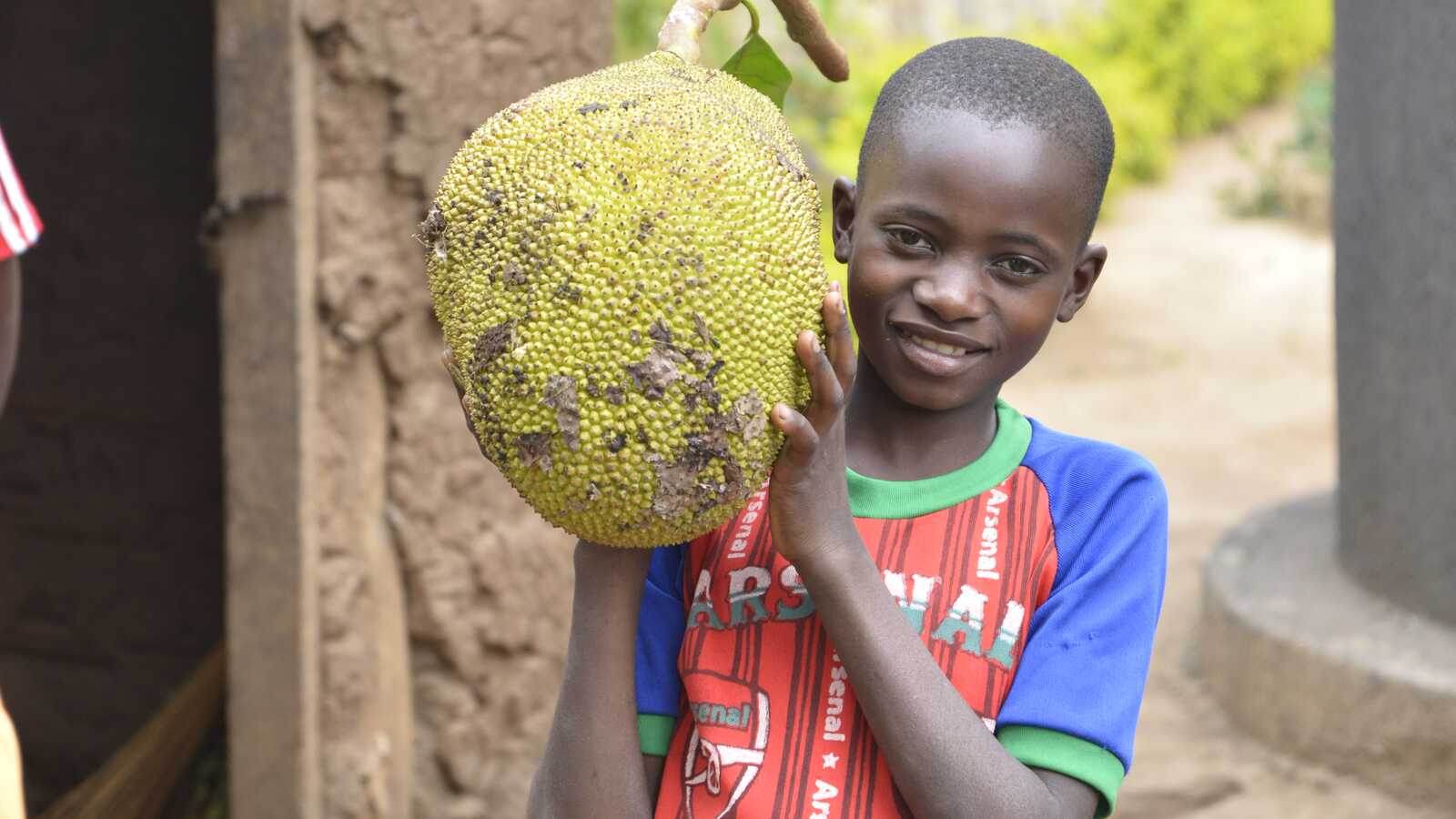
Uganda
Caring for orphaned and vulnerable children in Uganda since 2001 through child sponsorship and donations
On This Page:
Every year, sponsors and donors provide life-changing support for over 41,880 children and families in Uganda.
Nearly 20 percent of people in Uganda live in chronic poverty. Armed fighting among ethnic groups, a high infant mortality rate, poor access to medical care and pervasive HIV/AIDS have all placed additional stress on families. Many children in Uganda have lost one or both parents to conflict or HIV, leaving elderly grandparents or an older sibling to care for them. Together with generous sponsors and donors, Holt empowers vulnerable families in Uganda with the tools and resources they need to become strong, stable and self-reliant — keeping children safe and families together.
56% of children in Uganda do not have basic needs met
In rural villages, gifts of livestock provide nourishing food and steady income for families in need.
Families in poverty struggle to pay expensive school fees
Sponsors and donors help cover the cost of fees, books, uniforms and supplies, which can range from $50 to $150 per student.
A third of children under age 5 are stunted due to poor nutrition
Through free school lunch, sponsored children receive the vital nutrition they need to learn and grow.
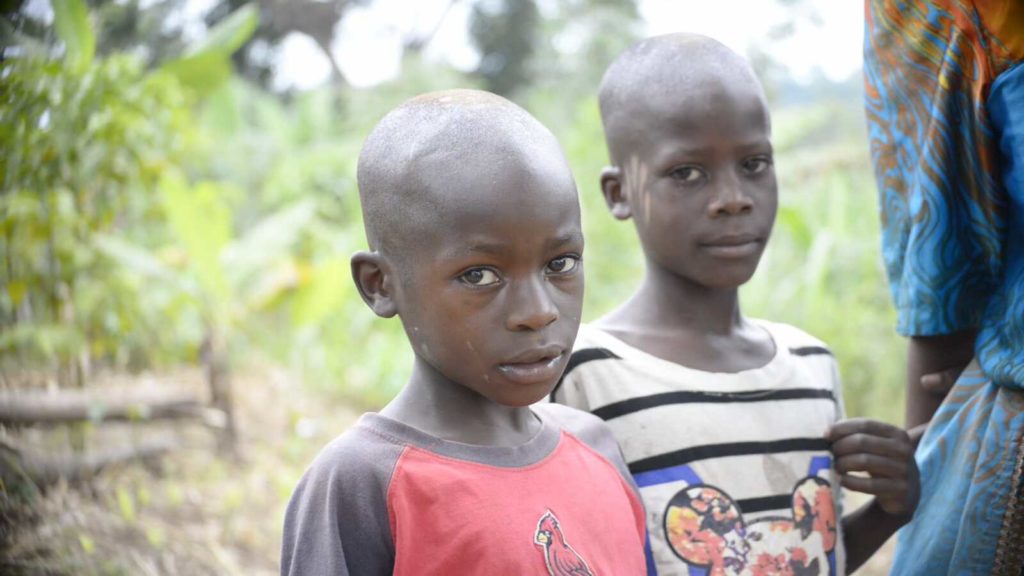
Help Children & Families in Uganda
Many children in Uganda have lost parents and live with extended family or are cared for by their eldest sibling. Children here need food, safe shelter, medical care and education. Nearly 20 percent of people in Uganda live in chronic poverty. Your gift will help a child or family in Uganda in greatest need.
Family Strengthening
Child sponsorship helps children and families thrive in Uganda.
In rural Uganda, sponsors and donors help families grow strong and self-reliant through programs that empower them to earn a stable income. Our Uganda team primarily focuses on larger families in which children are being raised by an older sibling, a single parent or a grandparent.

Education
More than two decades ago, in the late 1990s, the government of Uganda implemented a Universal Primary Education (UPE) policy that has increased access to millions of children nationwide. However, in the rural villages where Holt sponsors and donors support children, more than 30 percent of 6- to 9-year-olds have never or are not able to attend primary school. The reasons vary but are primarily due to a few main factors. First, education is very expensive in Uganda. The cost of school fees, books, supplies and uniforms is too much for families living in poverty. In rural areas, school may also be too far to walk for some children and few families can afford the fees for them to attend a boarding school. In some communities in Uganda, children below age 8 are still considered too young to start school. Families also often prioritize educating their sons, and will choose to send their son to school and keep their daughter home if they can only afford school fees for one child. As a result, many children drop out or never go to school in the first place.
But every year, Holt sponsors and donors make it possible for over 1,200 children living in rural villages in Uganda to attend preschool and primary school.
In 2018, Holt also began providing donor-funded scholarships for children to go on to secondary school. Children who attend secondary school on scholarship also receive life skills training and their parents or caregivers are counseled to encourage their child to stay in school through graduation.
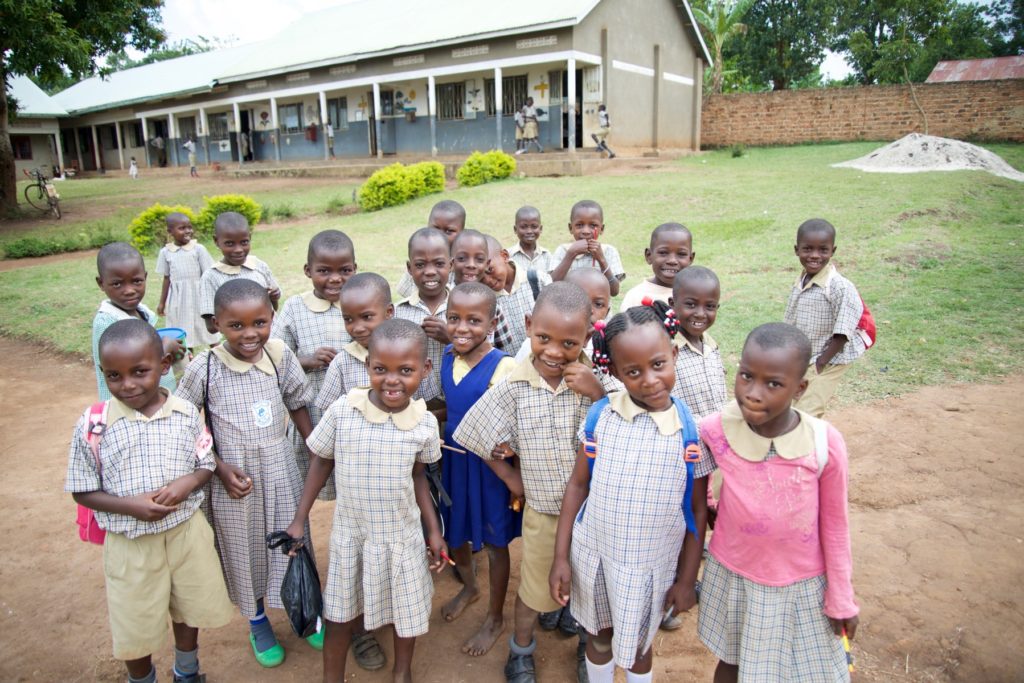
In Uganda, Holt staff also work with schools to improve their management practices and performance, and with government and community leaders to improve overall education standards. Our team conducts assessments on key issues in the community and shares findings with the government, and builds the capacity of parents to advocate for and invest in their children’s education. Ultimately, our approach engages everyone from children and families to community leaders and local government officials to ensure children of all ages have equal access to an education.

Early Childhood Care & Development
A pillar of Holt’s work in Uganda is early childhood care and development. In many parts of Uganda, children under age 8 are still considered too young to attend school and go without any formal preparation for primary education. In many rural communities, the nearest preschool is also often too far to walk and few families can afford the fees for their child to attend. As a result, young children often go to work with their parents or stay at home without proper supervision. They also miss out on a critical early education. That’s why, in rural villages, Holt sponsors and donors support children ages 3 and up to attend early childhood education centers. Holt staff in Uganda provide teacher trainings and developmentally enriching materials such as sensory-based teaching aids and learning materials, indoor and outdoor play equipment to promote physical and cognitive development, child-size chairs/desks and nutritious meals to support engagement in learning.
Since education begins at home, parents also receive support and training to help them nurture their children’s growth and development. Conflict and violence are common in families, and few parents have a strong understanding of the link between proper nutrition and healthy physical and cognitive development. Parent trainings may occur at a child’s home through one-on-one meetings with a Holt social worker, or they may occur as community group meetings. As parents learn about hygiene, nutrition, education, positive ways to discipline, the importance of vaccinations and more, they grow in their confidence and in their parenting skills. And whenever a specific problem arises for a family or child, Holt staff are there to offer counsel and individualized support.

Economic Empowerment
The families Holt sponsors and donors support in Uganda live in dire poverty. Many are headed by a single parent or relative, often an elderly grandparent or single mother. They have little formal education and few job opportunities in the rural areas where they live. But poverty should not prevent children from thriving in the love of their families.
In several rural villages of Uganda, Holt sponsors and donors help provide zero-interest microloans for families to start small businesses. They can use these start-up funds to grow a garden, open a small shop or begin a weaving business. With donor support, many families in Uganda also receive gifts of livestock to provide both nourishing food for their children and to grow their income. For these families, receiving an animal is like opening and investing in a bank account — it’s a gift that keeps growing. Many families in Holt’s program in Uganda now raise goats, chickens, cows or other animals. As these animals grow and multiply, families have eggs, milk, meat, manure and other commodities that they can use to nourish their family and sell as a small business. Giving a gift of livestock is one of the best ways to empower a family to grow stable and self-reliant.
Every family is also invited to become part of a community savings group. Through these groups, families provide advice, support and encouragement to help them overcome the common problems they face. Holt staff and partners provide training and coaching in financial literacy. Families are also encouraged to save and contribute to a community savings fund — a fund that can be borrowed from at zero interest to help expand their business, or when illness or another unforeseen expense arises.
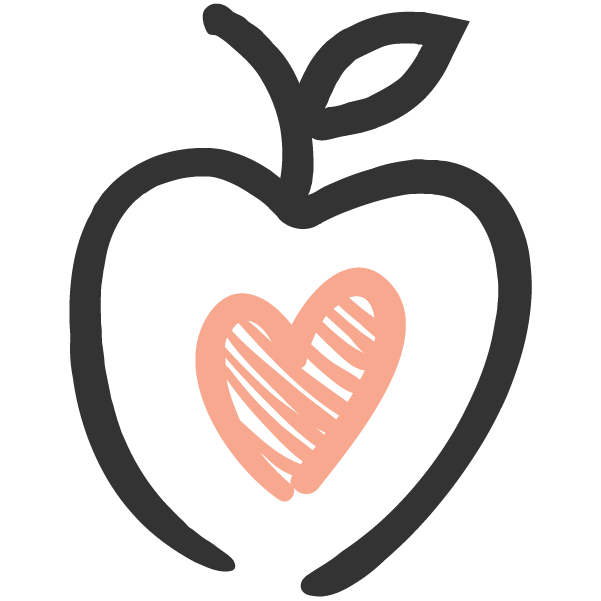
Nutrition & Health
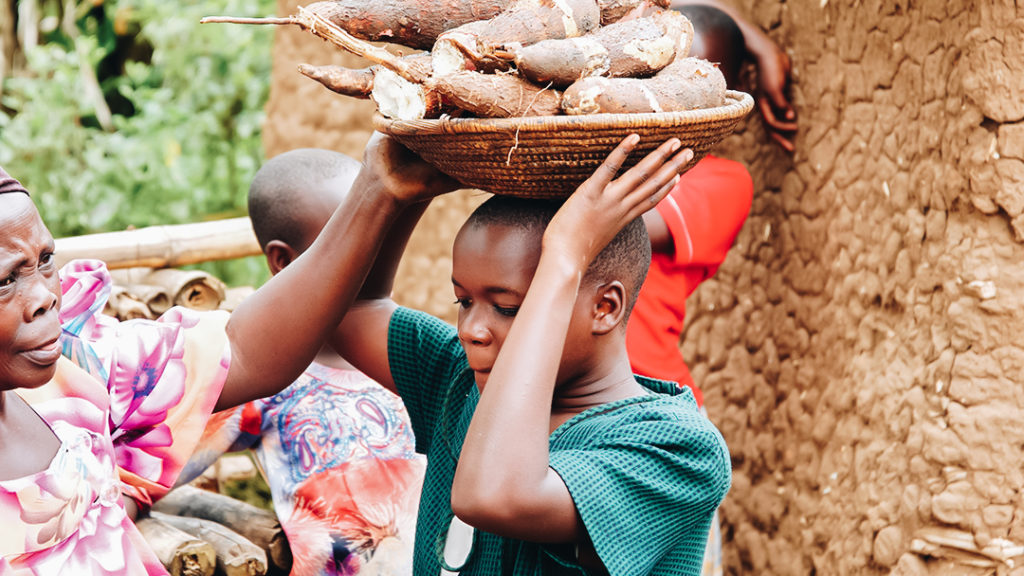
Many children go hungry in Uganda, especially in large families with minimal income and many mouths to feed. As a result, it’s all too common to see children who are too small for their age or showing telltale signs of malnutrition – such as chronic sickness, skin infections or discolored skin and hair. But nutrition is one of Holt’s top priorities for the children in our programs. With the support of sponsors and donors, children in Uganda receive nutritious meals every day at school or at early childhood education centers. Staff at early childhood centers monitor each child’s growth to ensure they are developing at a healthy rate, and make adjustments to their diet to meet any nutritional deficiencies. Holt staff in Uganda also empower families with resources to grow their own food or raise livestock for eggs, milk and income. Through Holt’s child nutrition program, families and caregivers in Uganda also receive training in proper nutrition and feeding for their children.
In total, Holt provided over 100,000 doses of supplements to pregnant women and children in 2020.
Every year in Uganda, Holt also holds child health days to address nutrient deficiencies in children and pregnant women living in hard-to-reach, rural areas. With the support of sponsors and donors, children receive essential supplements and pregnant women receive prenatal vitamins during these health days. Children and pregnant women can also be treated for parasites, which can sap essential nutrients from their bodies.